Import Bank Data |

|

|
|
Import Bank Data |

|

|
Obtaining Bank Files
Before importing bank data into Bank Reconciliation, it must be obtained from your bank. Each bank has different methods and procedures for providing you this data. Bank Reconciliation's only requirement is that it be in Excel spreadsheet (xls), comma-delimited (csv), tab-delimited text (txt), or even fixed width. It does not matter what order the fields are in internally as long as one of the listed formats can be obtained. Contact your bank for more information and assistance with this.
Importing Bank File
Click the Import bank button on the main screen to start the Import Wizard.
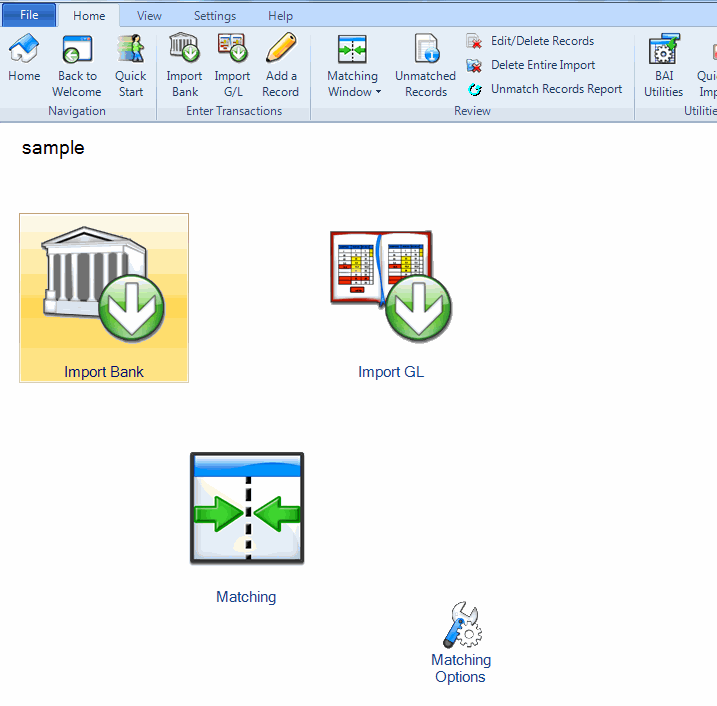
Click the Open Folder Icon on the General Ledger Import Wizard.
Select your file to Import and click Open. Common file types are Excel (.xls), Access (.mdb), Comma Delimited (.csv or .txt), tab delimited (.txt), and text (.txt).
Click Next.
Mapping
The General Ledger Column Mapping screen allows you to specify the purpose of each column. Simply highlight a column, and select the appropriate column mapping from the drop down for the data.
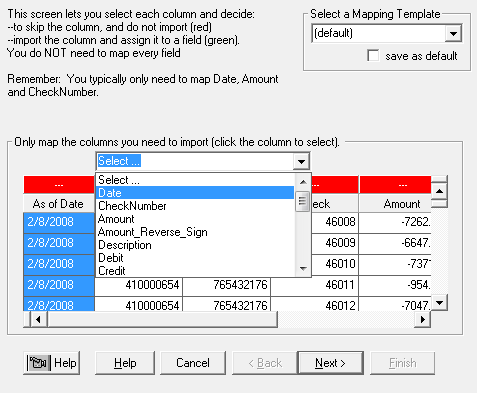
After selecting the Column Mapping, the section about the column names (F1, F2, F3, etc) will switch from Red to Green and list the selected mapping.
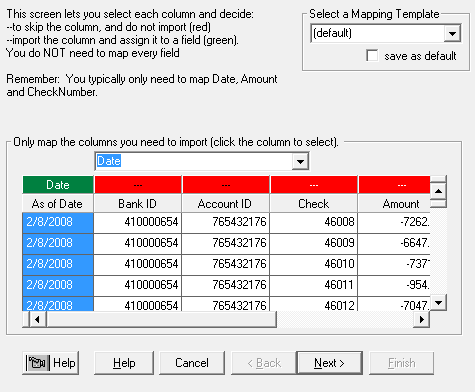
Repeat for each field that needs to be imported. Above, Date is mapped to the field containing transactions dates. Some common fields for Bank Reconciliation are CheckNumber for check number, Amount for transaction amounts (alternatively, Debit/Credit if amount is split into two fields), and Description for transaction description. See Selecting fields to represent amount for more information on choosing an amount mapping field.
Once all fields are mapped, click Next.
Review Records
This screen will display a list of the importable rows and invalid rows. To review the list of Importable Records, click on the “+” sign as shown below.
If the “Amount” and “# of Records” columns are correct, click Next and go to Finish.
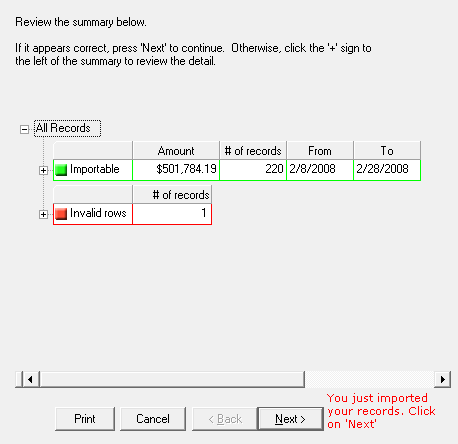
The grid will display the list of importable transactions, and the basic information on each transaction.
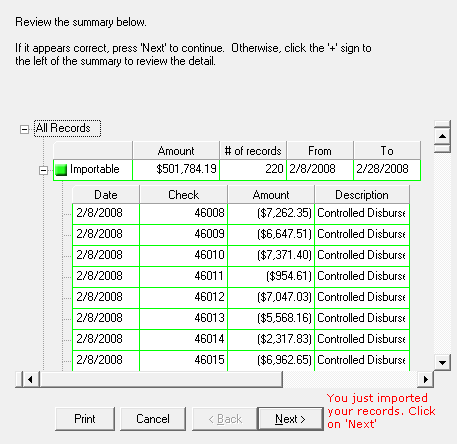
The Invalid Rows section will list all rows that will not be imported into Bank Reconciliation. The software will automatically mark header rows, footer rows, summation lines, and blank lines as invalid. For each row that is invalid, a check mark will be placed in the appropriate column indicating why the row was invalid. In the screenshot below, there was one transaction marked invalid due to a missing date.
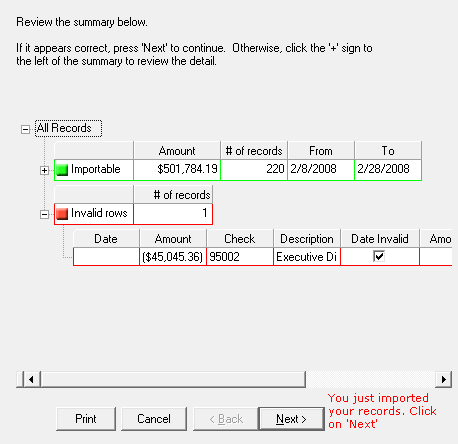
Once you have verified the importable information is accurate, click Next. If you wish to Cancel the import process and try again, simply hit Cancel.
Click Finish to complete the General Ledger Import Wizard.
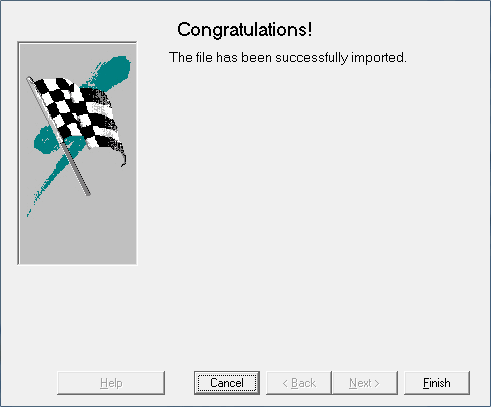
Next Step
Now that your General Ledger and Bank data has been imported, it is time to run Automated Transaction Matching to look for exceptions.
Next: Run Automated Transaction Matching >>